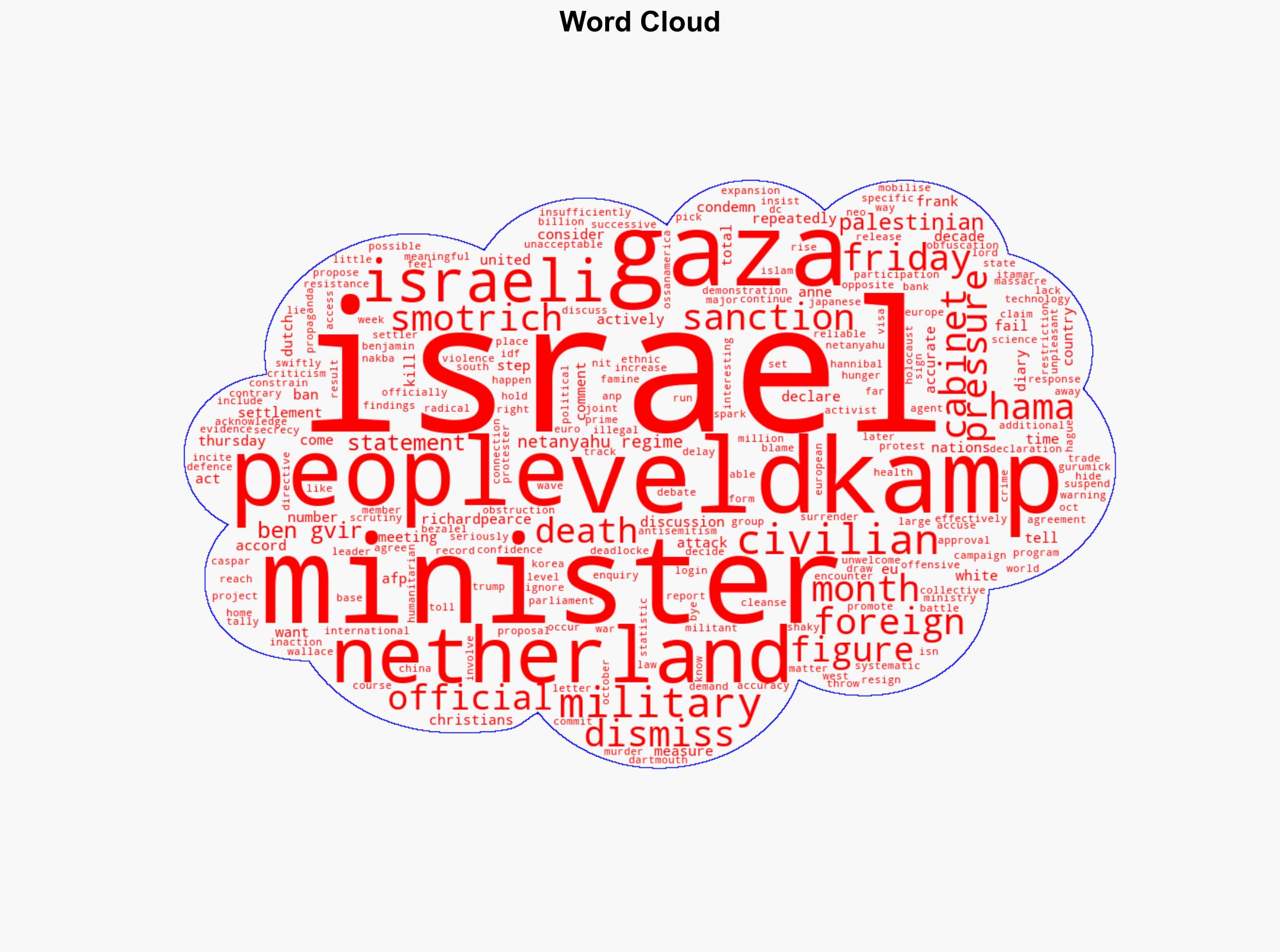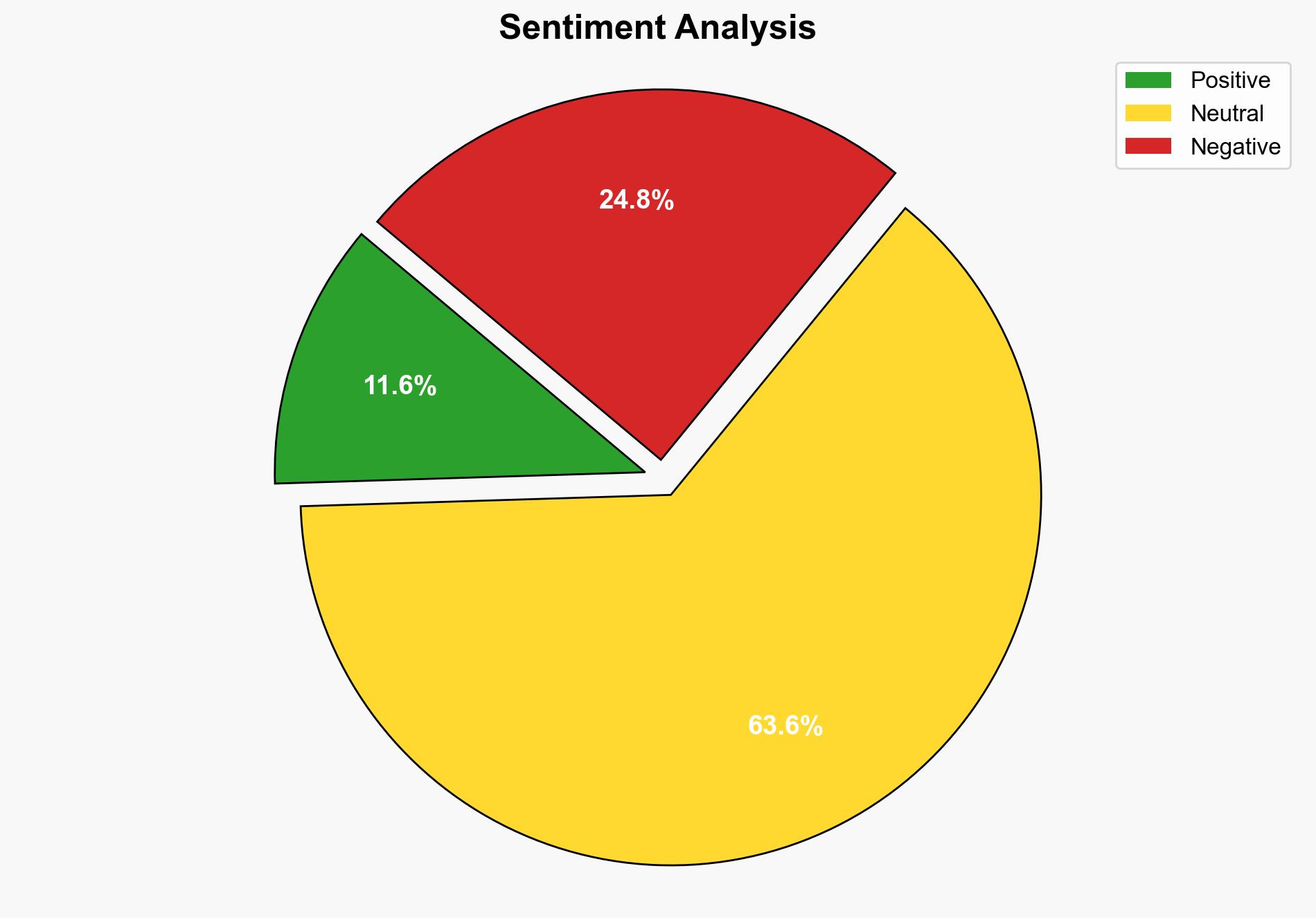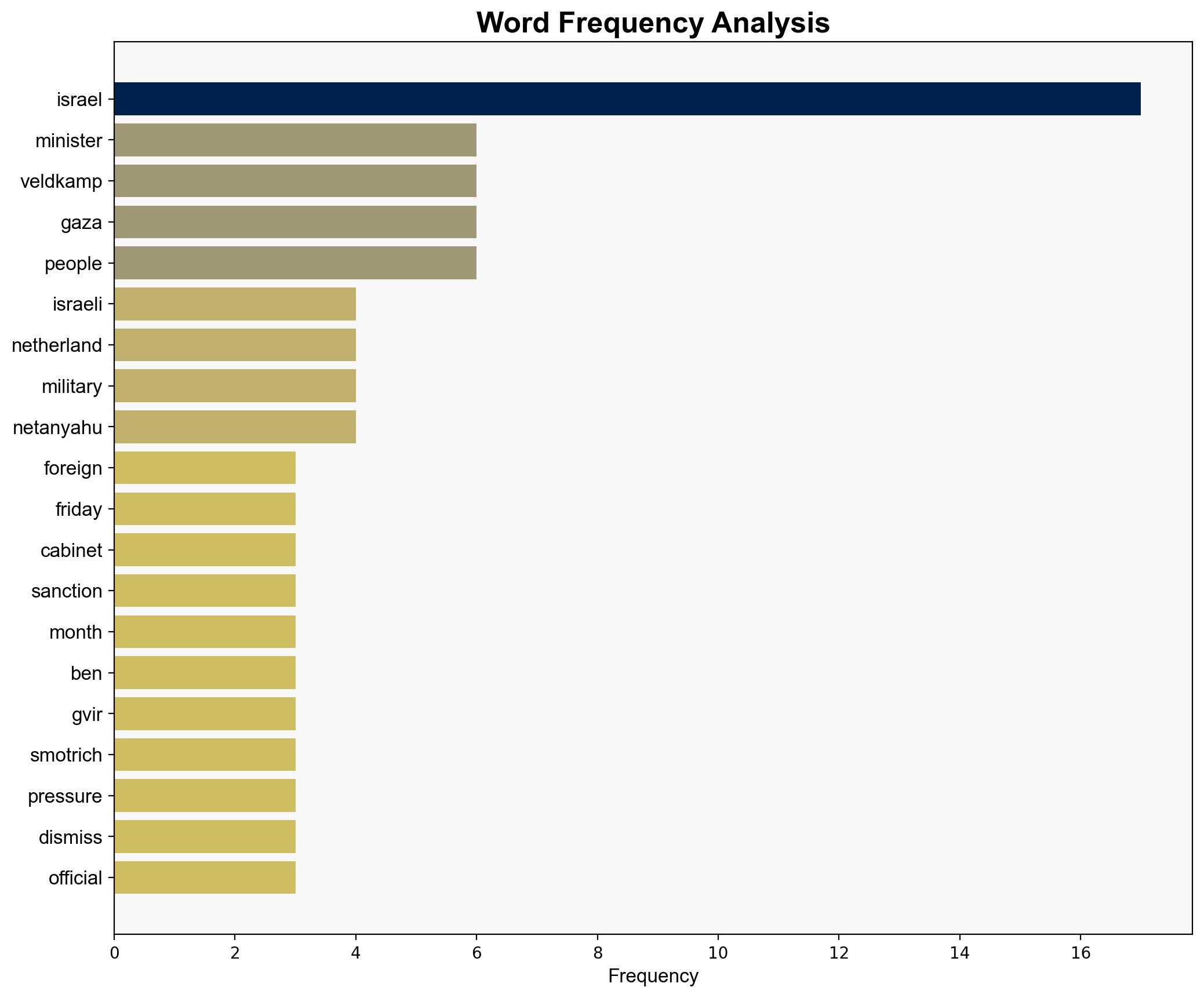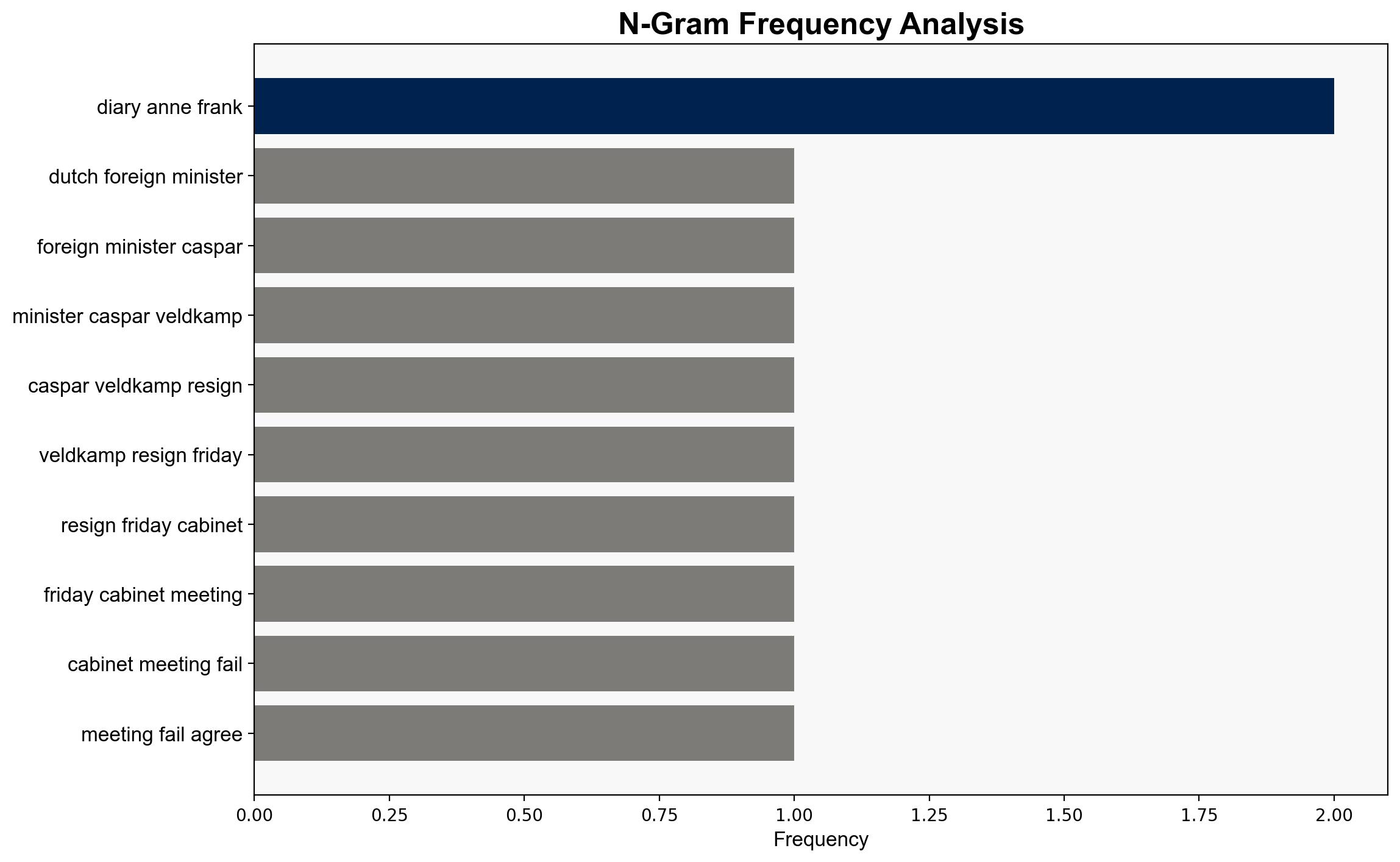Dutch Foreign Minister Resigns Over Israel Sanctions – International Business Times
Published on: 2025-08-22
Intelligence Report: Dutch Foreign Minister Resigns Over Israel Sanctions – International Business Times
1. BLUF (Bottom Line Up Front)
The resignation of Caspar Veldkamp as Dutch Foreign Minister highlights a significant diplomatic rift within the Netherlands regarding sanctions on Israel. The most supported hypothesis is that internal political pressures and public protests have driven this resignation, rather than a strategic shift in foreign policy. Confidence level: Moderate. Recommended action: Monitor developments in Dutch-Israeli relations and EU discussions on sanctions for potential shifts in regional alliances.
2. Competing Hypotheses
1. **Internal Political Pressure Hypothesis**: Veldkamp’s resignation is primarily due to internal political pressures and public protests against perceived inaction on Israel’s settlement policies. The failure to reach a consensus on sanctions reflects a divided cabinet and public opinion.
2. **Strategic Policy Shift Hypothesis**: The resignation signals a strategic shift in Dutch foreign policy towards a more assertive stance on Israel, potentially aligning with broader EU efforts to apply pressure through sanctions.
Using ACH 2.0, the internal political pressure hypothesis is better supported by the evidence of large-scale protests and cabinet deadlock, indicating a reactive rather than proactive policy environment.
3. Key Assumptions and Red Flags
– **Assumptions**: It is assumed that the protests and cabinet deadlock are directly influencing policy decisions. There is an assumption that Veldkamp’s resignation is a direct response to these pressures rather than a premeditated strategic move.
– **Red Flags**: The lack of consensus within the EU on sanctions suggests potential overestimation of collective action. The absence of clear statements from other Dutch officials on future policy direction introduces uncertainty.
4. Implications and Strategic Risks
– **Geopolitical Risks**: Continued deadlock within the EU could weaken collective bargaining power, potentially emboldening Israeli settlement expansion.
– **Economic Risks**: Potential sanctions or trade restrictions could impact EU-Israel economic relations, affecting sectors reliant on bilateral cooperation.
– **Psychological Risks**: Public protests could escalate, leading to increased political instability within the Netherlands and potentially influencing other EU member states.
5. Recommendations and Outlook
- Monitor Dutch political developments and public sentiment to anticipate shifts in policy.
- Engage with EU partners to assess the feasibility of coordinated sanctions and their potential impact.
- Scenario Projections:
- Best Case: The Netherlands and EU reach a consensus on a balanced approach, maintaining diplomatic relations while addressing settlement concerns.
- Worst Case: Escalation of protests and political instability leads to a fragmented EU response, weakening collective influence.
- Most Likely: Continued debate and incremental policy adjustments without significant immediate changes.
6. Key Individuals and Entities
– Caspar Veldkamp
– Itamar Ben Gvir
– Bezalel Smotrich
– Benjamin Netanyahu
7. Thematic Tags
national security threats, geopolitical dynamics, EU foreign policy, Middle East relations




